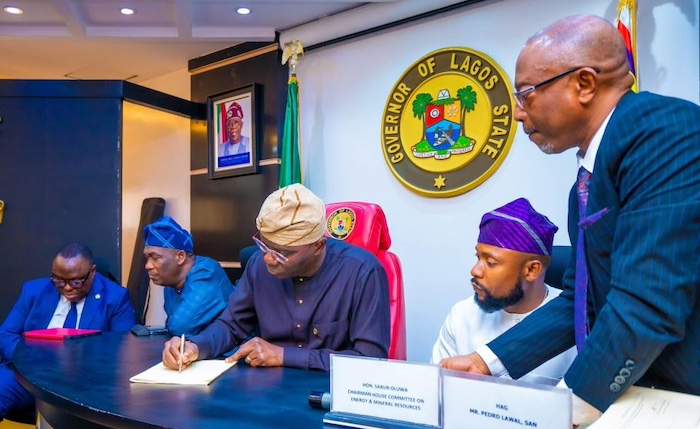The Lagos State Government has promised to provide methods to make the city’s economy run around the clock using sustainable and dependable energy.
The Ministry of Energy and Mineral Resources has revealed a bold future plan to improve electricity reliability, promote local manufacturing of power infrastructure components, and provide universal energy access in order to realize this objective.
At the present Ministerial Press Briefing to mark Governor Babajide Sanwo-Olu’s six years in office, Commissioner for Energy and Mineral Resources Engr. Biodun Ogunleye spoke about these strategic aims.
The full implementation of the Lagos Electricity Market structure under the Lagos State Electricity Law, 2024, Ogunleye said, is a key initiative of the Ministry. This will entail licensing independent electricity distribution companies, assisting embedded generation, and operationalizing the Lagos Independent System Operator (LISO) in order to stabilize the power ecosystem.
“With dependable and sustainable energy solutions, we are proactively moving Lagos towards a 24-hour economy,” Ogunleye said.
Along with plans to expand these initiatives throughout rural and riverine areas, he said the Ministry is also working to finish and power eight interconnected mini-grids in underprivileged communities.
“Long-term energy planning and infrastructure investment will be guided by the Lagos Integrated Resource Plan, which is presently being developed.”
In addition, Engr. Ogunleye revealed that agreements are being reached to collaborate with domestic and foreign investors on the local production of power assets such transformers, meters, cables, and switchgear.
Read Also: Labour Party in Crisis as Obidient Movement Joins ADC Across 5 States!
In addition to strengthening the energy value chain, Ogunleye claims that this will increase industrial capacity, generate jobs, and lessen the State Government’s reliance on imports.
In order to guarantee that no community is left behind in the energy transformation, Lagos is also planning to activate the Lagos State Electrification Agency (LSEA) and strengthen its partnership with the Rural Electrification Agency under the DARES initiative.
The Commissioner stated, “When all of these plans come to fruition, Lagos will have effectively established itself as a model for sub-national energy transformation in Africa, utilizing partnerships, technology, and policy to power prosperity.”

